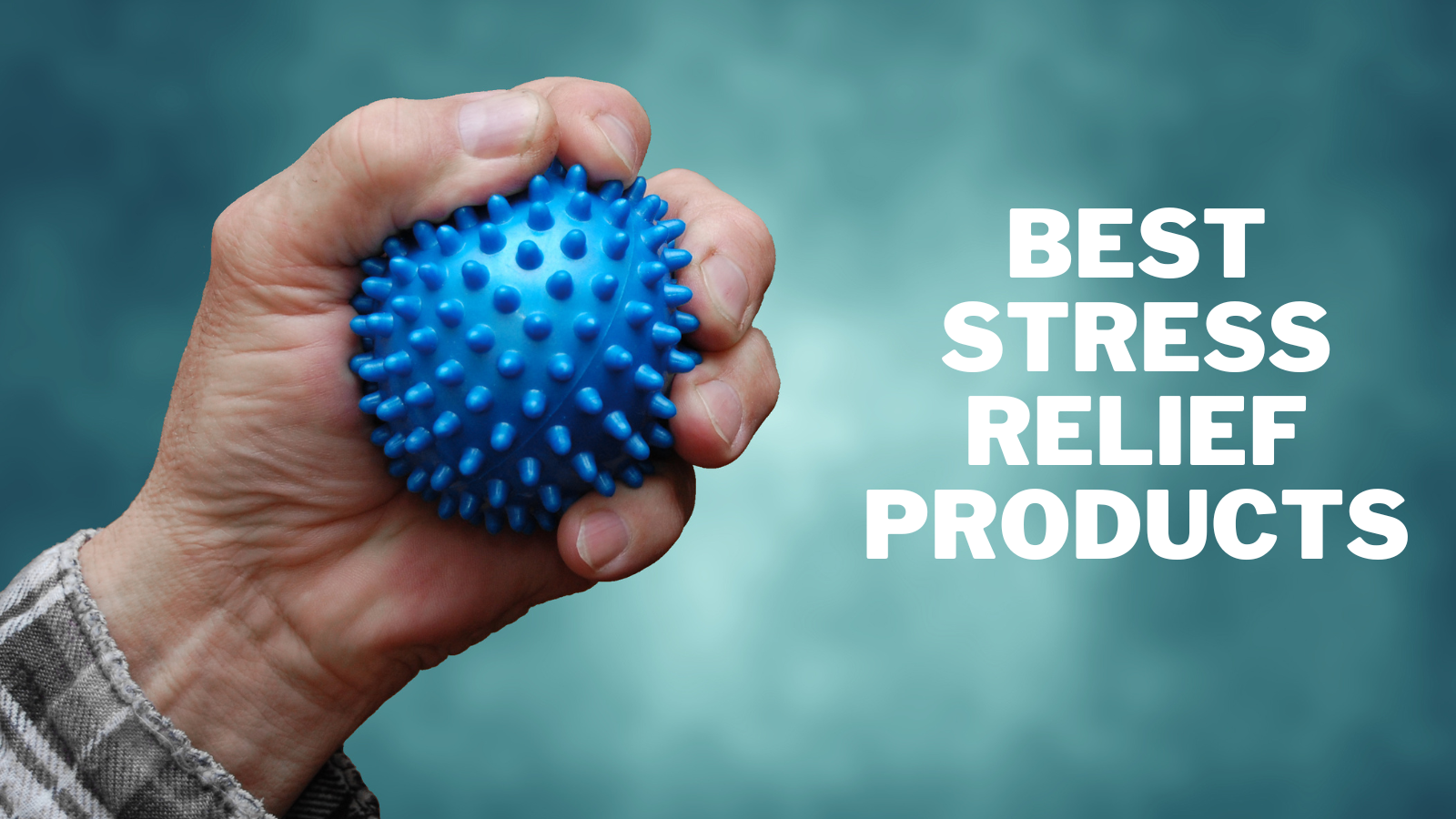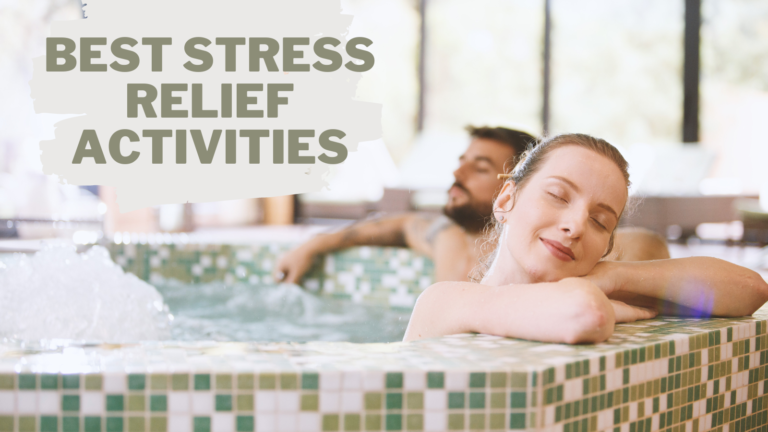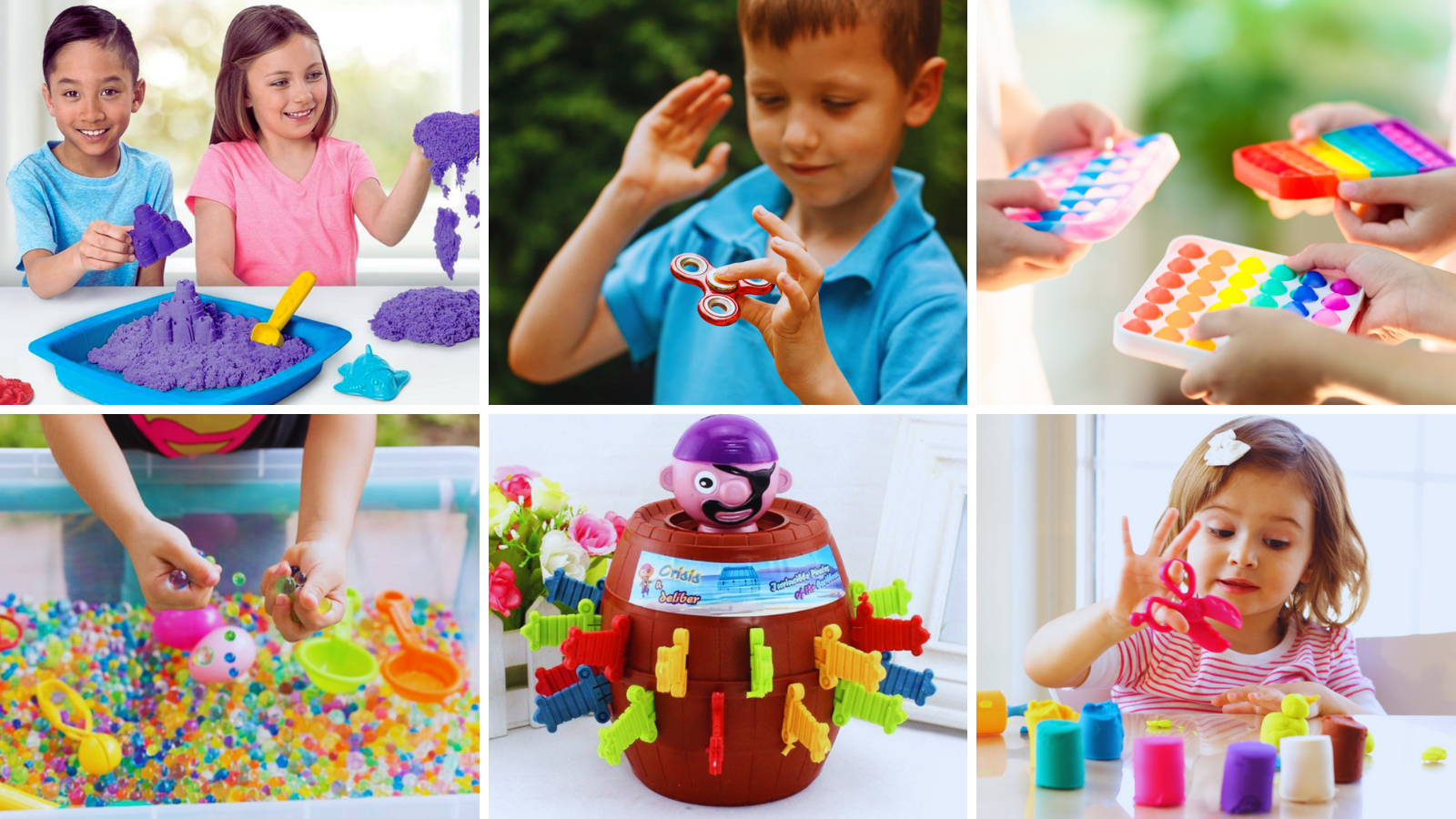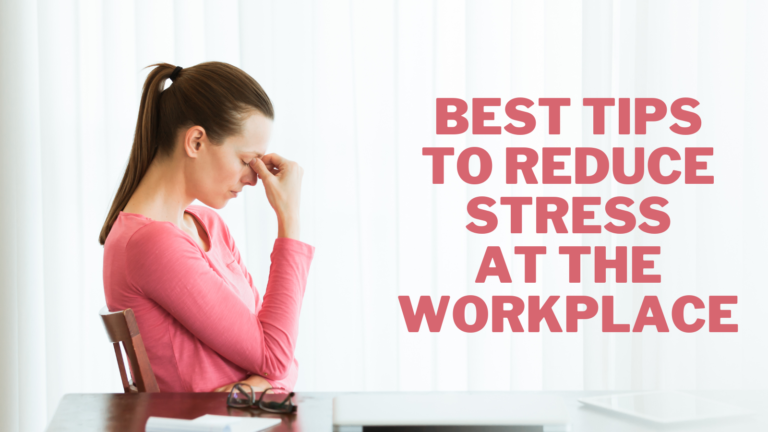Best Stress Relief Products
Best Stress Relief Products
We all know how stressful life can get sometimes, and it's important to take care of ourselves and find ways to relax and unwind.
In this post, we will explore some of the most effective stress relief products on the market today so that you can find the perfect solution for your needs.
From aromatherapy to massage tools, there are many different products to choose from, and we're excited to share our top picks with you.
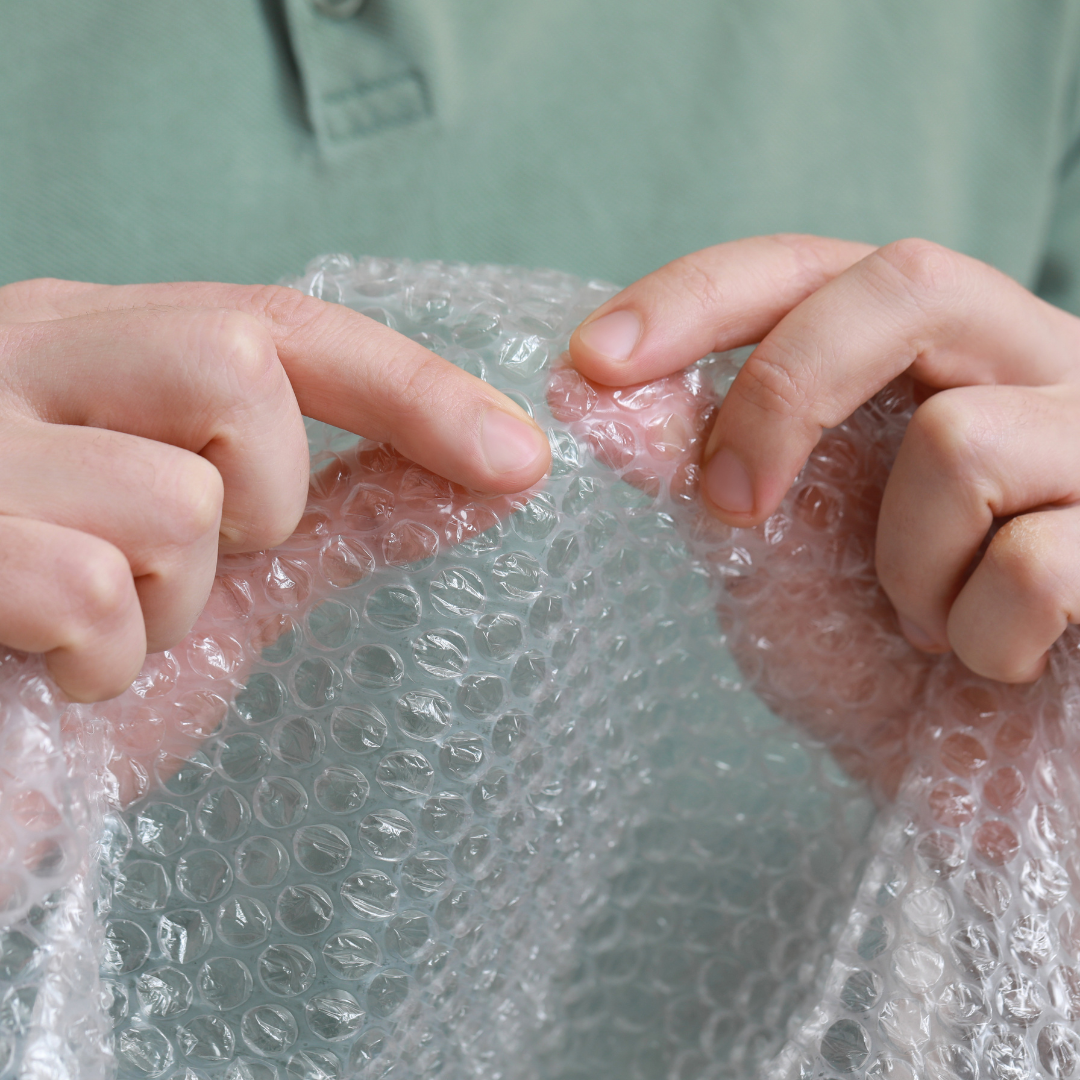
Importance Of Stress Relief Products
Stress is a common problem affecting millions of people worldwide. It can negatively affect our physical and mental health, making it important to find effective ways to manage and reduce stress.
1. Reduced Stress And Anxiety
Stress and anxiety are common experiences that affect many people at some point. While some stress levels can be beneficial in motivating us to achieve our goals, excessive stress and anxiety can negatively impact our mental and physical health.
Chronic stress has been linked to various health problems, including cardiovascular disease, digestive issues, and depression.
Fortunately, many stress relief products can help alleviate stress and anxiety symptoms. Stress balls, for example, are small, squeezable balls that can relieve tension and promote relaxation. Squeezing a stress ball can help release muscle tension and reduce feelings of anxiety.
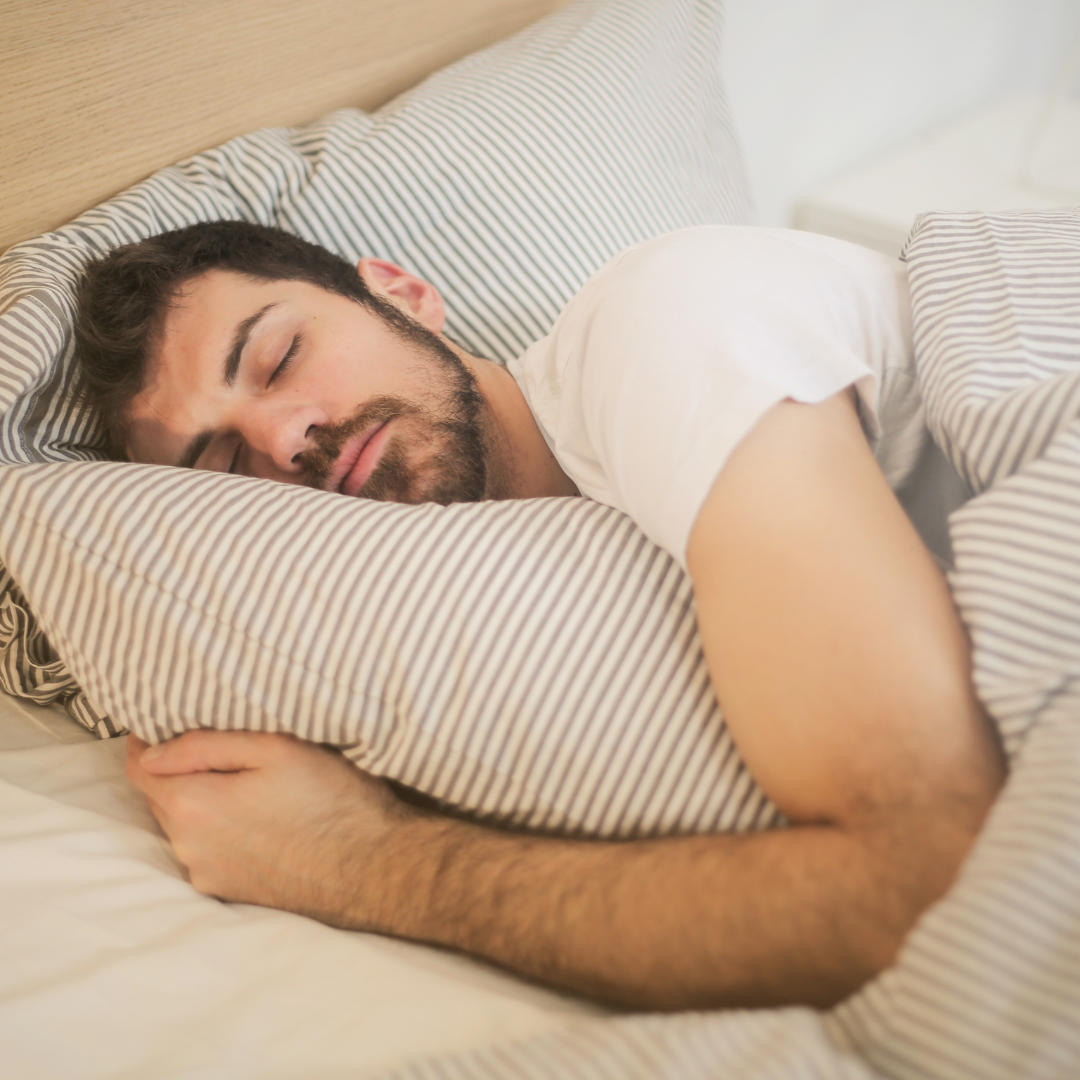
2. Improved Sleep
Sleep is essential for our physical and mental health. However, stress can often make falling or staying asleep difficult, leading to sleep deprivation and other health problems.
Stress triggers the release of cortisol, a hormone that can interfere with the natural sleep-wake cycle and reduce sleep quality.
One way to alleviate stress and improve sleep quality is by using stress relief products. Weighted blankets, for example, can help calm the body and promote relaxation by providing deep pressure stimulation.
This type of pressure has been shown to increase serotonin levels in the brain, which can help regulate mood and improve sleep quality.
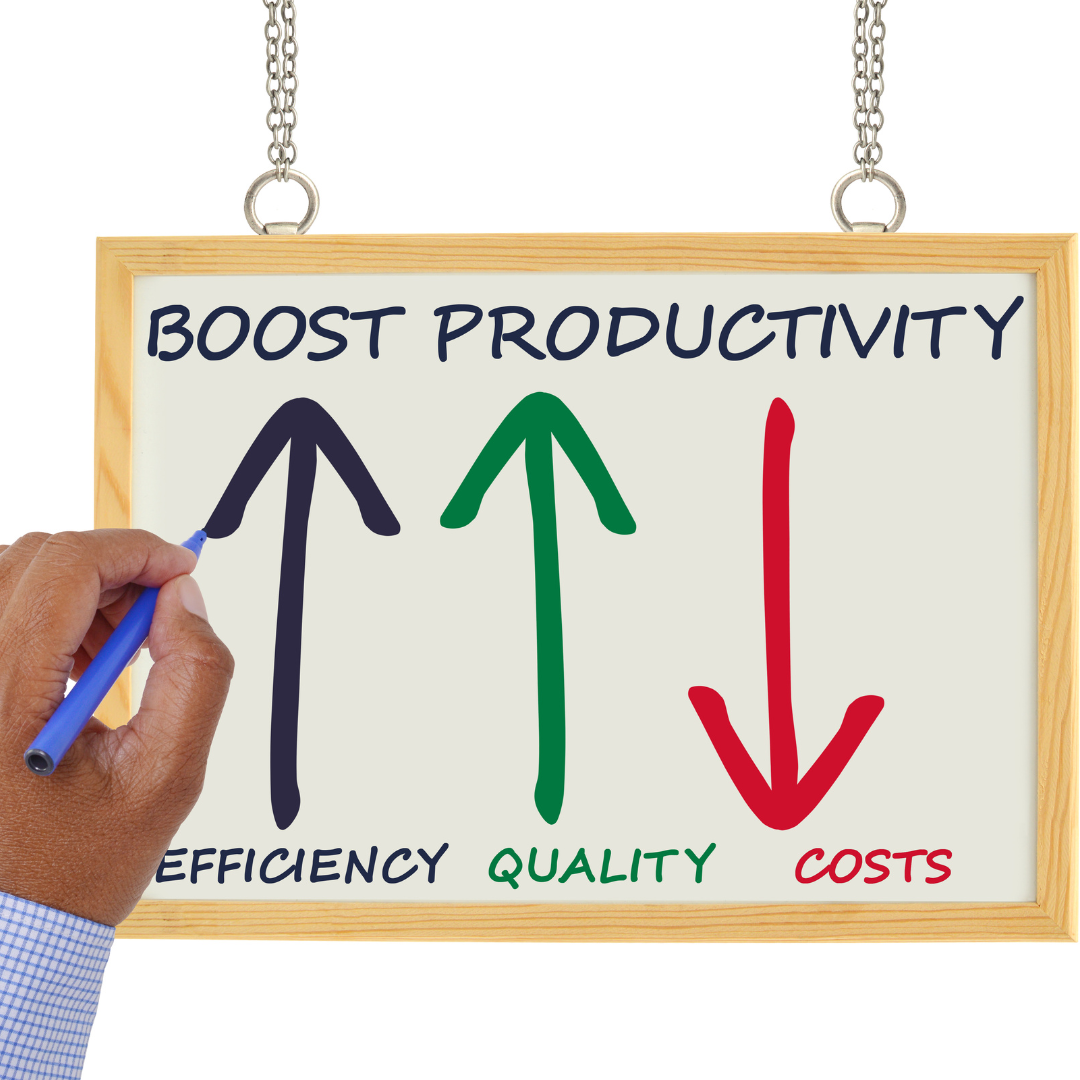
3. Boosts Productivity
Stress is a natural response of our body to a challenging situation. However, prolonged or excessive stress can lead to negative consequences, including decreased productivity. Stress affects our ability to focus, make decisions, and complete tasks efficiently.
Stress relief products such as ergonomic chairs, standing desks, and noise-cancelling headphones can help alleviate the negative effects of stress on productivity.
Ergonomic chairs provide proper support to the body, reducing physical discomfort and pain that may result from sitting in an uncomfortable chair for extended periods.
Standing desks allow for more movement and help prevent the negative consequences of a sedentary lifestyle, such as obesity and poor cardiovascular health.
4. Promotes Physical Health
Many regularly experience chronic stress due to work-related pressure, financial difficulties, or personal problems.
When you're under stress, your body produces hormones such as cortisol and adrenaline, which can trigger the “fight or flight” response and cause your heart rate and blood pressure to increase.
Over time, this constant activation of the stress response can affect your physical health. Studies have linked chronic stress to various health problems, including high blood pressure, heart disease, diabetes, obesity, and digestive issues.
One way to combat the negative effects of stress on your body is to incorporate stress relief practices into your daily routine.
This might include exercise, meditation, deep breathing, or mindfulness activities. Another effective strategy is to use stress relief products such as massage balls, foam rollers, and acupressure mats.
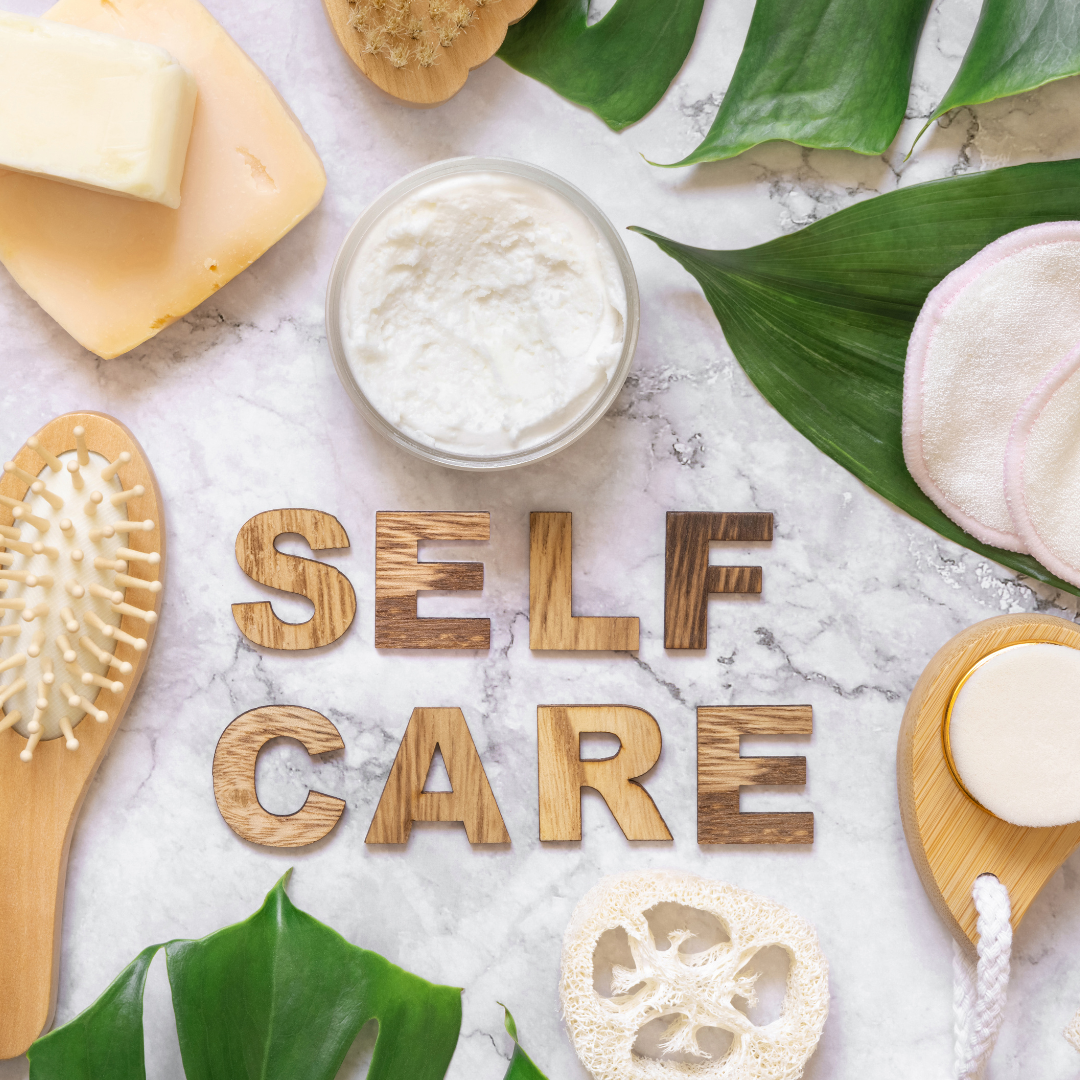
5. Encourages Self-Care
Self-care is a crucial component of maintaining good mental health and overall well-being. It involves taking deliberate steps to improve physical, emotional, and mental health.
Self-care can take various forms, such as getting enough sleep, eating a healthy diet, exercising regularly, and taking time to unwind and relax.
Using stress relief products is one way to practice self-care. Stress relief products include essential oils, aromatherapy candles, weighted blankets, and massage balls.
These products can help alleviate stress, reduce anxiety, and promote relaxation. By using stress relief products, individuals can take control of their well-being and consciously prioritize their mental health.
Practicing self-care is especially important in today's fast-paced, high-stress world. The demands of work, family, and other responsibilities can take a toll on our mental health, leading to burnout and other negative outcomes.
Engaging in self-care activities, such as stress relief products, can help prevent burnout and promote a positive outlook.
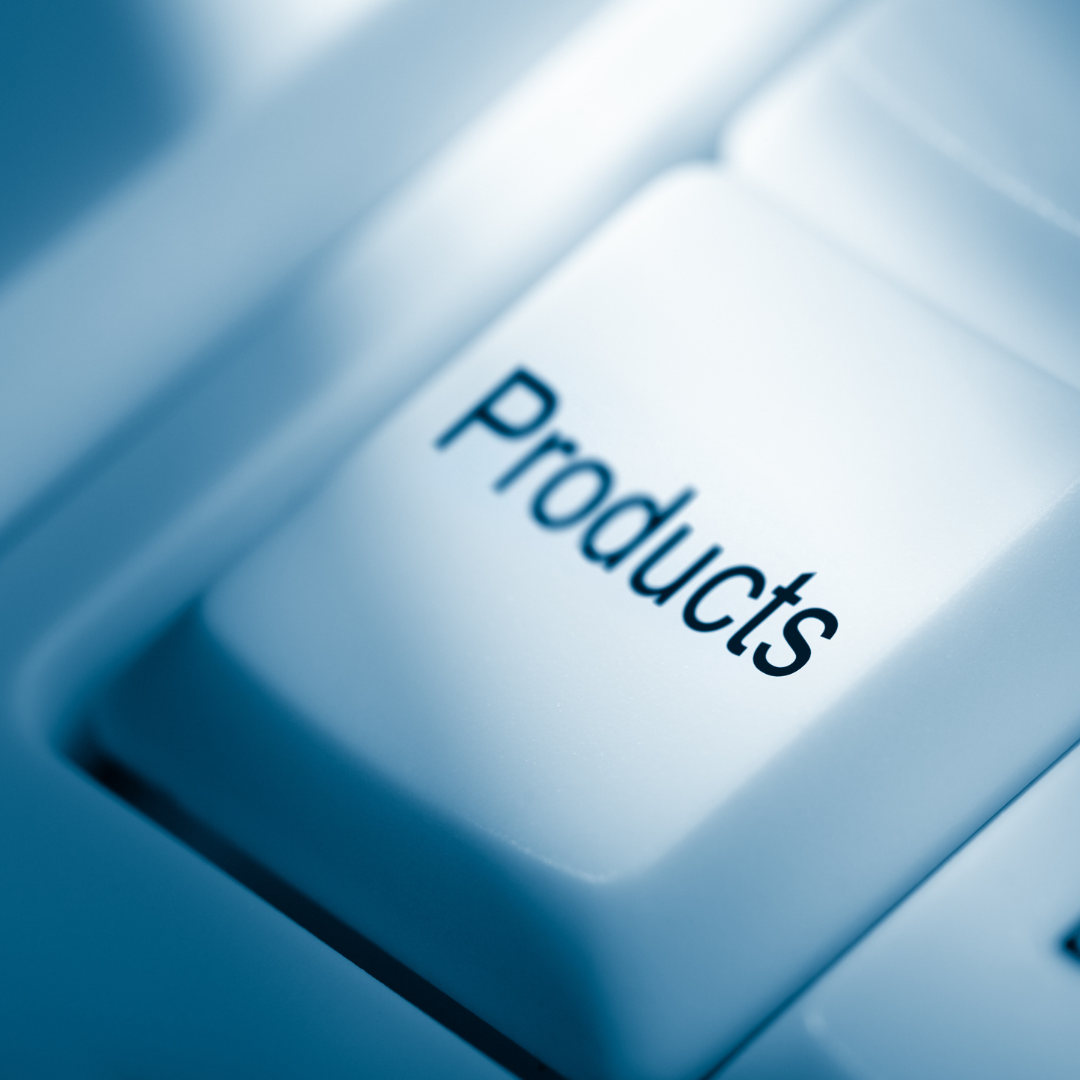
Best Stress Relief Products
Stress relief products come in various forms and can help reduce stress levels in different ways.

1. Essential Oils
Essential oils are highly concentrated plant extracts used for centuries for their therapeutic properties.
They are derived from various parts of plants, such as leaves, flowers, and roots, and are known for their fragrant and medicinal qualities.
- Lavender oil, for example, is known for its calming and soothing properties. It has been used for centuries to help reduce anxiety and promote relaxation.
- Chamomile oil is another popular essential oil known for its calming and soothing effects. It can help to reduce stress and promote restful sleep.
- On the other hand, Eucalyptus oil is known for its refreshing and energizing properties. It can help to clear the mind and promote mental clarity. It is also useful for relieving muscle pain and tension.
There are many ways to use essential oils for relaxation and stress relief. Diffusing essential oils in a diffuser is a popular method, as it allows the oils to be dispersed throughout the room.
Essential oils can also be added to a warm bath, applied topically to the skin, or used in a massage.
2. Weighted Blankets
Weighted blankets have recently gained popularity as therapeutic tools for individuals struggling with anxiety, stress, and sleep disorders.
Using weight to promote relaxation and calmness has been around for centuries and is rooted in deep pressure stimulation (DPS) therapy.
DPS therapy involves applying pressure to the body to release serotonin, a neurotransmitter that contributes to feelings of well-being and happiness.
This pressure can come from various sources, such as a massage, a hug, or a weighted blanket. The pressure from the blanket can also help to lower cortisol levels, which are associated with stress.
Weighted blankets are typically filled with materials such as plastic pellets or glass beads, which add weight to the blanket without making it too bulky.
The weight of the blanket should be approximately 10% of the user's body weight to achieve the desired effect.
This weight can be evenly distributed throughout the blanket or concentrated in certain areas to target specific pressure points.
Many individuals who use weighted blankets report feeling a sense of comfort and security when using them.
The pressure from the blanket can help reduce anxiety and promote relaxation, leading to better sleep quality.
In addition, some studies have shown that weighted blankets may effectively treat conditions such as autism, ADHD, and PTSD.
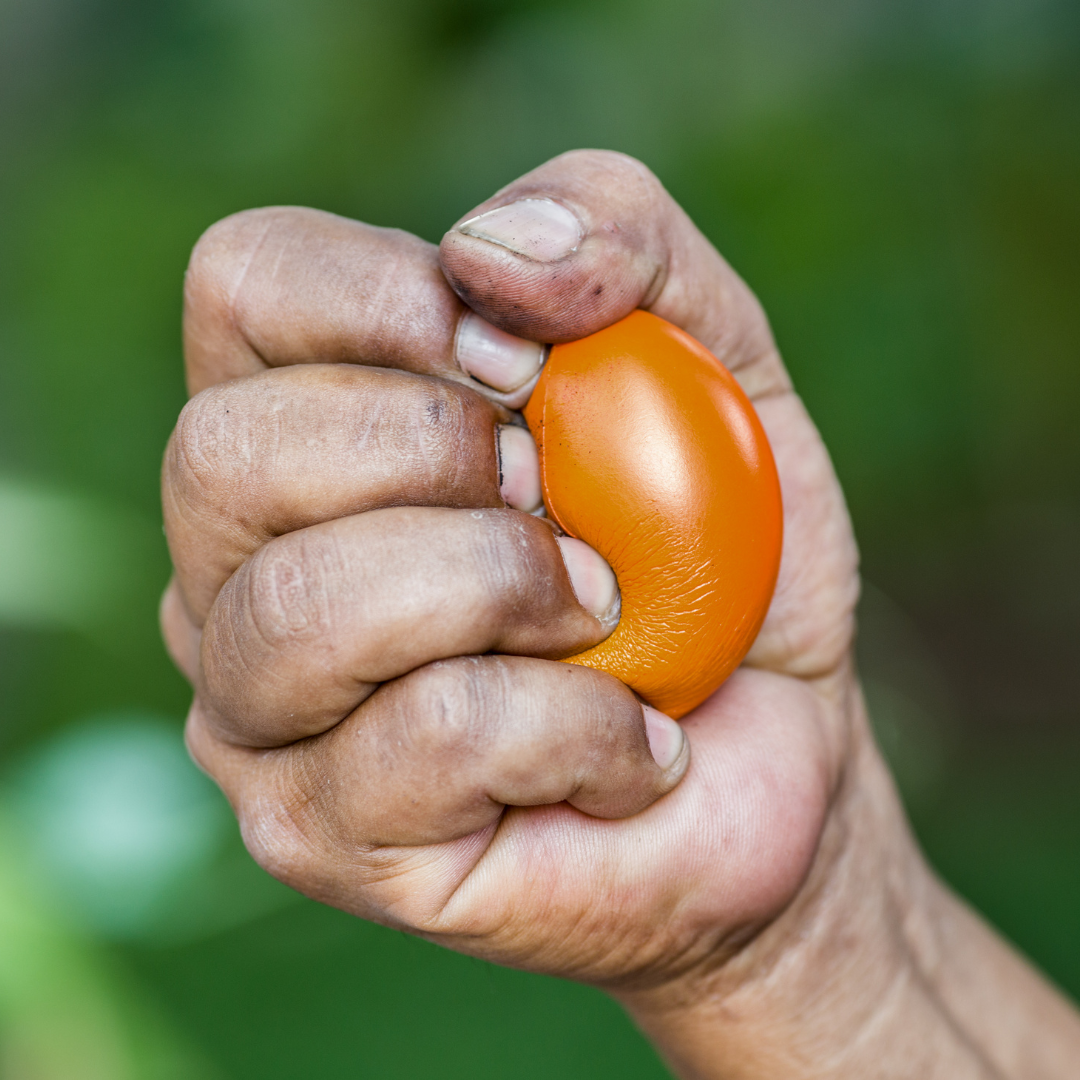
3. Stress Relief Balls
Stress relief balls have become a popular tool for managing stress and anxiety, particularly in the workplace.
They are typically small and portable, making them easy to keep on hand when you need a quick stress-relieving break.
Squeezing and manipulating a stress ball can physically release tension and anxiety. This physical release can help to reduce muscle tension and lower levels of the stress hormone cortisol.
Many stress balls are available on the market, including foam, gel, and rubber. Foam stress balls are soft and lightweight, making them easy to manipulate.
Gel stress balls are slightly firmer than foam balls and can be chilled for an added cooling effect. Rubber stress balls are the firmest, most durable option and can withstand repeated squeezing.
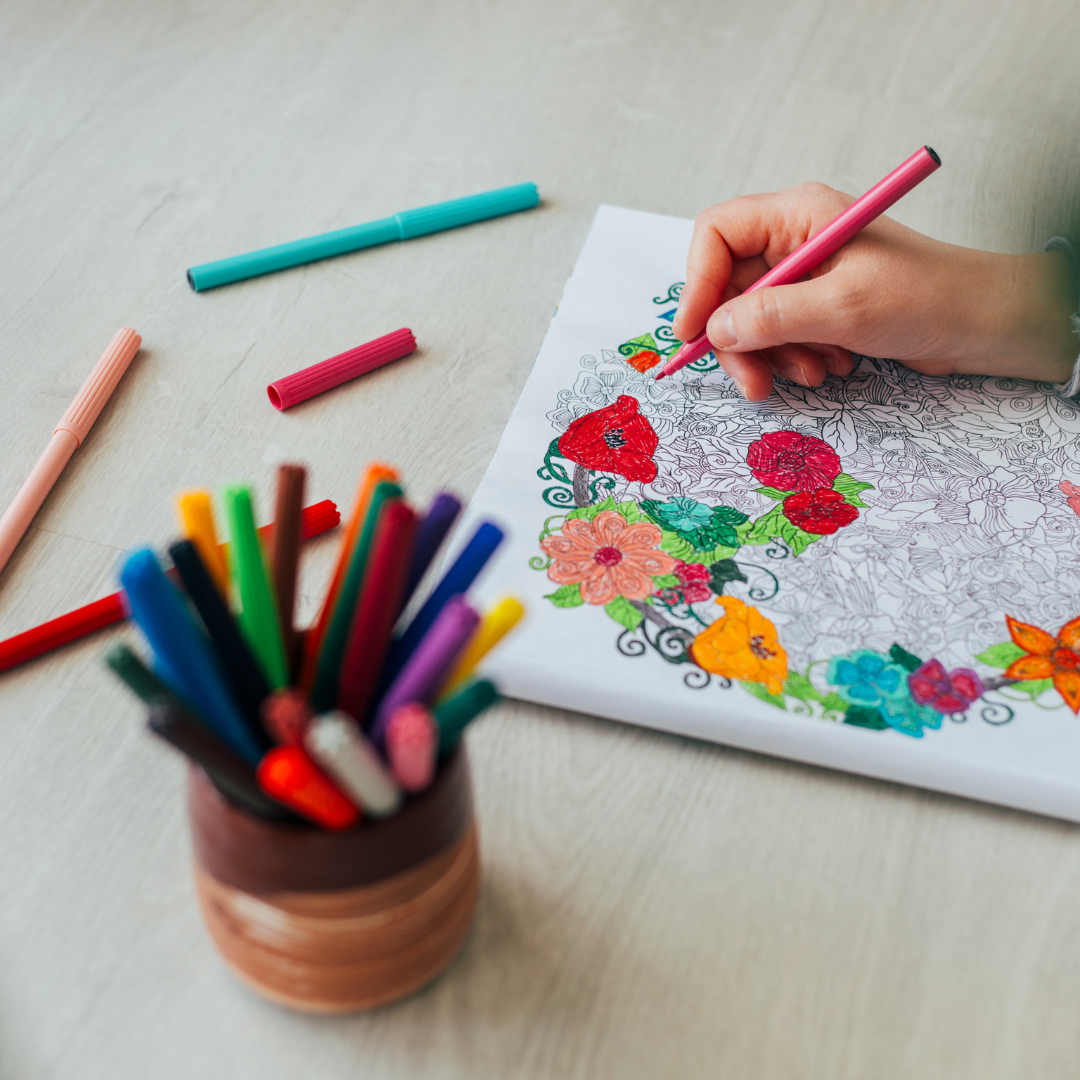
4. Colouring Books
Colouring books designed for adults typically feature intricate designs and patterns that require focus and attention to detail, which can help redirect your thoughts away from stressors and promote mindfulness.
Colouring can be a form of creative expression and a way to engage in a soothing, repetitive activity that can help calm the mind and relax the body.
Adult colouring books have various themes and styles, from nature scenes to abstract designs, mandalas, and more.
They often come with high-quality paper suitable for various colouring mediums, such as coloured pencils, markers, or gel pens.
Some colouring books also include inspirational quotes or prompts encouraging reflection and self-care.
Colouring can be a solitary activity, allowing for quiet introspection and relaxation, or a social activity you can enjoy with friends, family, or in a group setting.
It can be done at home, in the office, or even during travel, making it a portable and convenient stress relief option.
Engaging in colouring can stimulate the creative part of your brain, which can help reduce stress and promote a sense of accomplishment and satisfaction.
It can also provide a break from screen time and technology, allowing you to disconnect and unwind from the digital world.

5. Aromatherapy Diffusers
Aromatherapy diffusers are devices designed to disperse essential oils into the air, creating a fragrant and therapeutic atmosphere. Using essential oils for medicinal purposes dates back thousands of years and is still popular today.
There are several aromatherapy diffusers, including ultrasonic, nebulizing, and heat diffusers. Ultrasonic diffusers use water and ultrasonic vibrations to disperse essential oils into the air.
Nebulizing diffusers use air to break the oils into tiny particles and then disperse them into the atmosphere. Heat diffusers use heat to evaporate the oils and release them into the air.
Aromatherapy diffusers are popular for creating a relaxing and calming environment, which can help reduce stress levels and promote better sleep.
They can also help with other health concerns like headaches, respiratory issues, and mood disorders.

6. Mindfulness Journals
Mindfulness journals focus on cultivating mindfulness, which is being present and aware of your thoughts, feelings, and surroundings.
The goal of mindfulness is to help you develop a greater sense of clarity and calm, even amid stress and anxiety.
Mindfulness journals often include prompts and exercises to help you focus on the present moment and cultivate greater self-awareness.
For example, you might be prompted to write about your emotions, physical sensations, or what you are grateful for.
These prompts can help you become more aware of your thoughts and feelings and can also help you develop greater insight into the causes of your stress and anxiety.
One of the key benefits of mindfulness journals is that they can help you reduce your stress levels.
By becoming more aware of your thoughts and feelings, you can learn to identify the sources of your stress and develop more effective strategies for managing it.
Mindfulness journals can also help you develop greater resilience in the face of stress and adversity by helping you cultivate a more positive and resilient mindset.

7. Noise-Cancelling Headphones
Noise-cancelling headphones are a type of headphones that use active noise control technology to reduce unwanted ambient sounds.
The headphones use microphones to pick up external noise and then produce an opposite sound wave that cancels out the unwanted noise.
This technology can be especially helpful in loud environments such as airplanes, trains, or busy offices.
There are two main types of noise-cancelling headphones: over-ear and in-ear. Over-ear headphones have larger ear cups covering the ears, while in-ear headphones fit directly into the ear canal.
Both headphones can effectively block out external noise, but over-ear headphones generally provide better noise isolation.
While noise-cancelling headphones can help create a peaceful environment, using them safely and responsibly is essential.
Listening to music or other audio at high volumes for extended periods can lead to hearing damage, so frequent breaks are recommended to keep the volume low.
8. Handheld Massagers
Handheld massagers are portable devices that can provide targeted massage to specific body areas.
They typically come with different attachments, such as rollers, nodes, or brushes, that can apply various pressure and massage techniques.
Handheld massagers can be used on various body parts, such as the neck, back, arms, or legs, to relieve muscle tension and promote relaxation. They commonly release tension by applying pressure and sweeping or kneading motions.
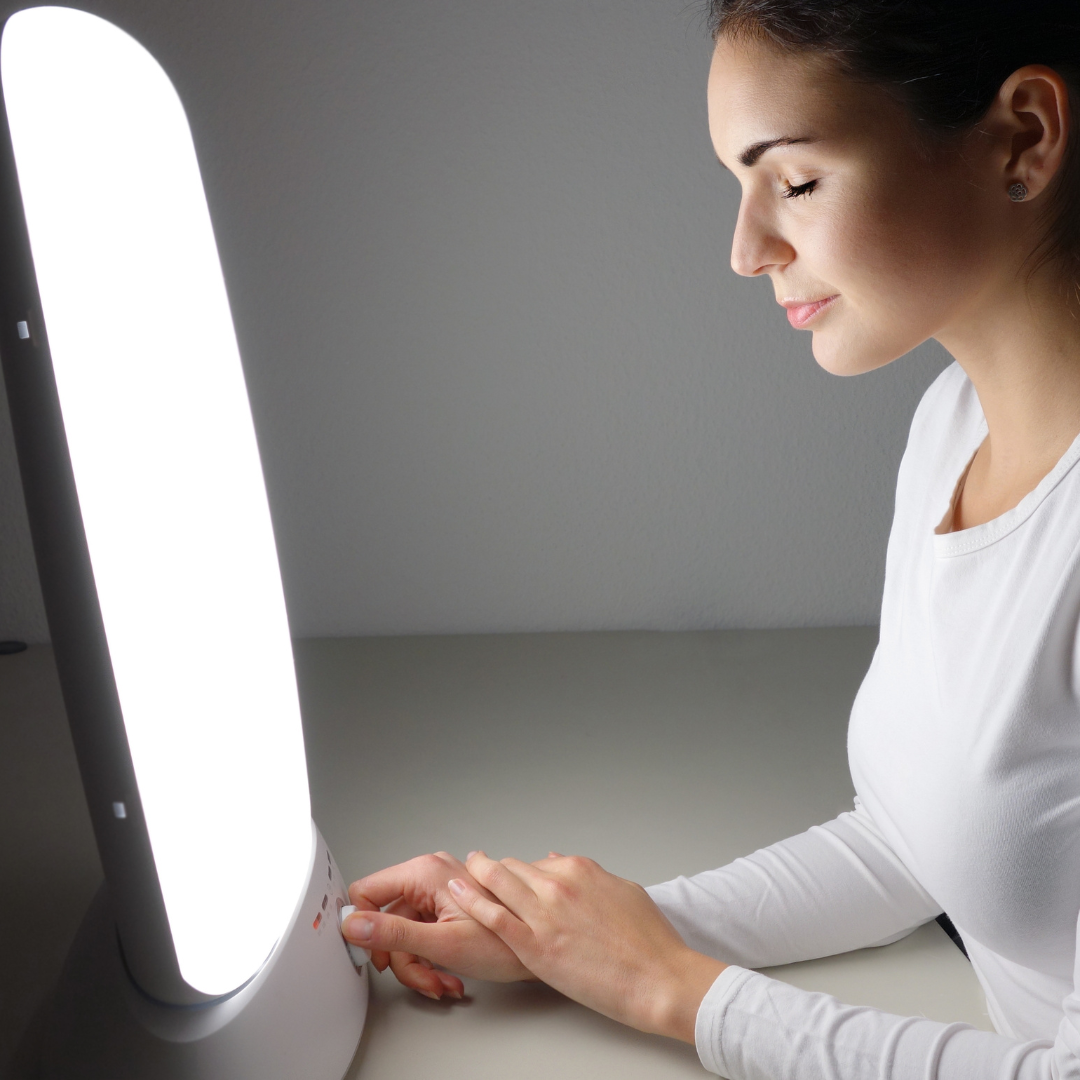
9. SAD Lamps
Seasonal Affective Disorder (SAD) is a type of depression that affects individuals during the fall and winter months when there is less sunlight.
The lack of sunlight can disrupt the body's circadian rhythm, which regulates sleep and mood.
Symptoms of SAD can include low mood, lack of energy, difficulty concentrating, and changes in appetite or sleep patterns.
SAD lamps, also known as light therapy boxes, are designed to simulate natural sunlight and provide individuals with a dose of bright light that can help regulate their circadian rhythm and improve their mood.
These lamps are typically used for 20-30 minutes daily and can be used while reading, working, or engaging in other activities.
SAD lamps are generally considered safe, but using them correctly is important to avoid potential side effects such as eyestrain, headaches, or sleep disturbance.
It's also important to note that SAD lamps should not be used as a replacement for other treatments for depression or SAD, such as medication or therapy.
10. Foam Rollers
Foam rollers are cylindrical foam devices commonly used for self-massage and myofascial release. They are designed to help relieve muscle tension, improve flexibility, and increase blood circulation.
Foam rollers apply pressure to specific body areas, such as the back, legs, or shoulders, and can release tension in tight muscles caused by stress or physical activity.
They come in various sizes, densities, and textures, allowing users to customize the intensity of the massage to their preference.
The foam can range from soft to firm, with different textures providing varying degrees of pressure.
By rolling the foam roller along the muscles, users can apply pressure to trigger points, knots, and adhesions, helping to release tension and improve muscle function.
Foam rollers are popular among athletes, fitness enthusiasts, and those seeking self-care techniques for muscle recovery and overall physical well-being.
Incorporating foam rolling into a routine can provide benefits such as improved muscle recovery, flexibility, and performance.
Still, using them safely and consult a healthcare professional if you have any medical conditions or injuries is important.

Conclusion
Finding effective ways to relieve stress is vital for maintaining overall health and well-being.
Various stress relief products can be helpful, but choosing ones tailored to an individual's needs and preferences is essential.
Stress relief products should also be used with other stress management techniques for optimal results.
By prioritizing stress relief and self-care, individuals can improve their quality of life and reduce the negative impact of stress on their mental and physical health.
I trust you enjoyed this article about the Best Stress Relief Products. Please stay tuned for more blog posts to come shortly. Take care!
JeannetteZ
>>>Please click here to read my all-inclusive article about Lessons That Will Teach You All About Stress<<<
>>>Are you interested in Natural Healing And Stress Relief through Herbs? Please click here for my #1 Recommendation<<<
Your Opinion Is Important To Me
Thoughts? Ideas? Questions? I would love to hear from you. Please leave me your questions, experiences, and remarks about this article on the Best Stress Relief Products in the comments section below. You can also reach me by email at Jeannette@Close-To-Nature.org.
Disclosure
This post may contain affiliate links. I earn from qualifying purchases as an Amazon Associate and other affiliate programs. Please read my full affiliate disclosure.
You might also enjoy these blog posts:
Best Acupressure Points To Relieve Stress
Best Essential Oils To Reduce Stress
7 Best Ways To Deal With Exam Stress
13 Best Simple Ways To Deal With Stress At Work

